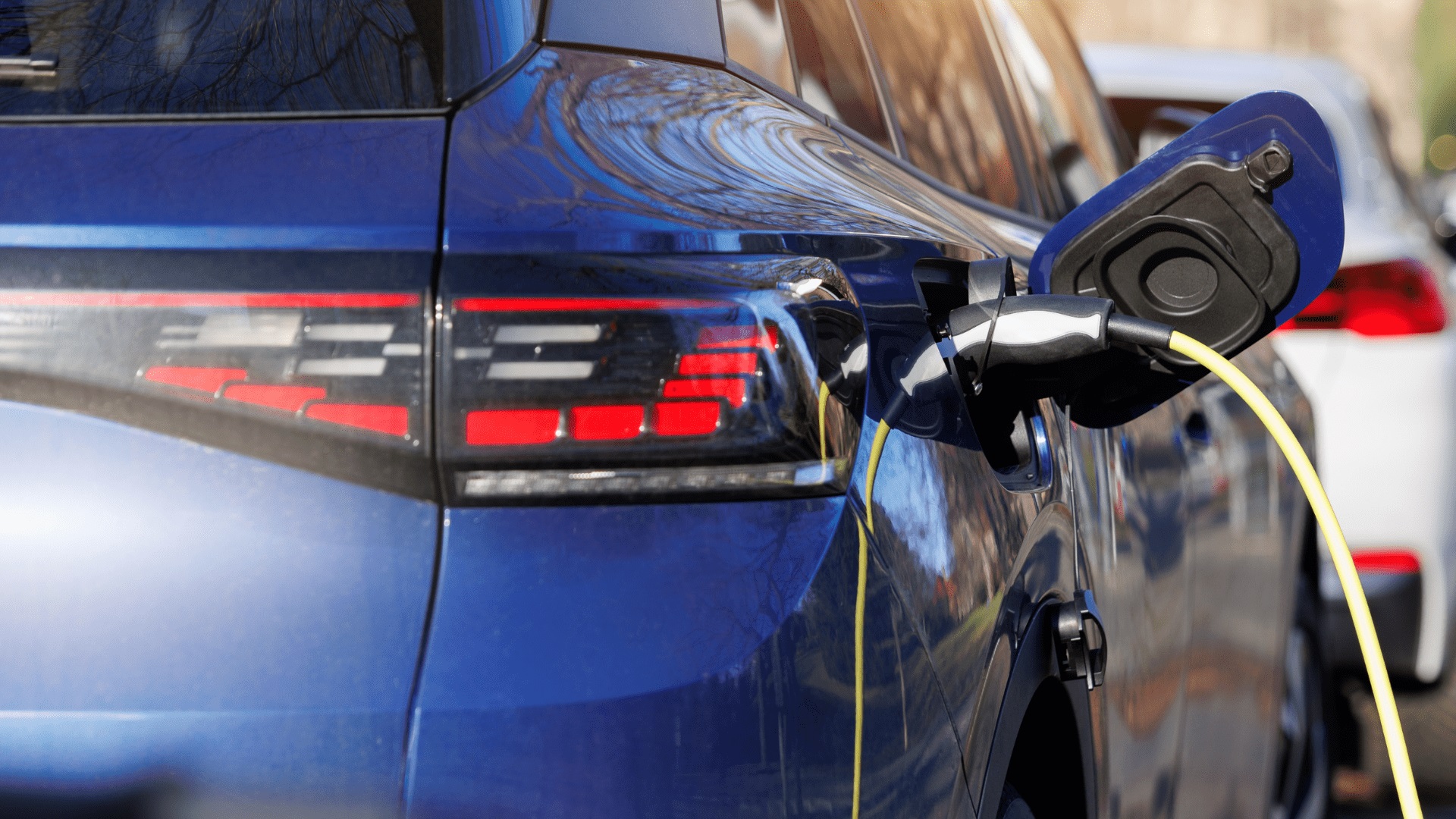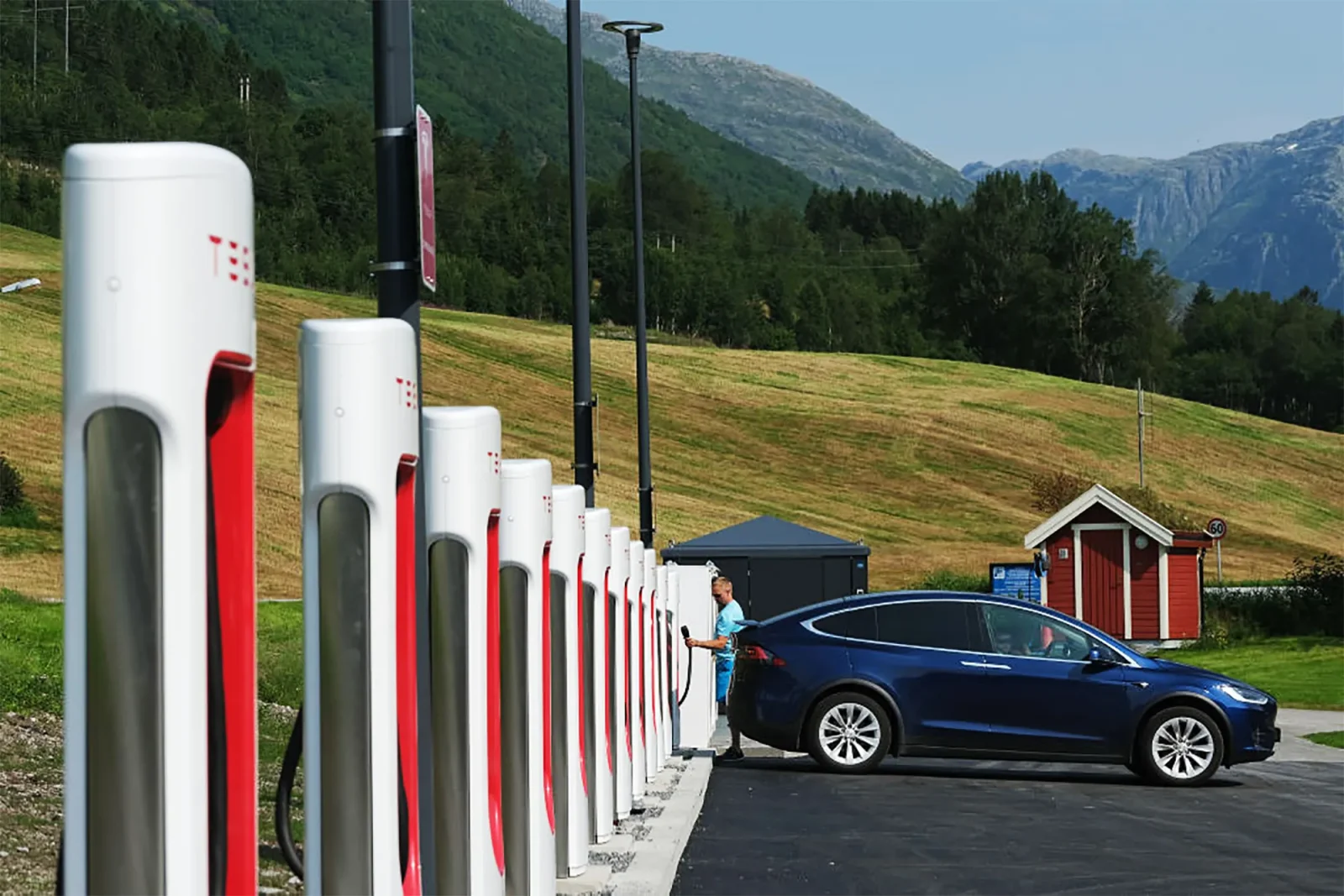At some point this month, Norway is expected to have more electric vehicles (EVs) on its roads than petrol-only cars, based on an analysis of Norwegian government data.
This analysis was conducted by Bilbransje24, a Norwegian auto industry publication, which utilized data from the Road Traffic Information Council (Opplysningsrådet for Veitrafikken, OFV).
Norway consistently provides detailed monthly updates on its auto sales, a useful resource for those tracking the electric vehicle market in what is arguably the most EV-focused nation in the world. In August, the country set another world record, with 94% of new car sales being electric.
Norway has long been a trailblazer in EV adoption, boasting the highest market share of electric vehicles globally.
The country aims to stop selling new gasoline-powered cars by 2025, a more ambitious goal compared to the 2035 targets adopted by many other regions.
In fact, Norway nearly reached its 2025 goal early, with non-electrified vehicles representing only a single-digit percentage of car sales as far back as 2021.
In some cases, countries have suddenly halted the sale of internal combustion engine (ICE) vehicles with minimal notice, as sales of such cars continued to decline.
As with most technological transitions, the last few percentage points are always challenging, but hitting single-digit sales of non-electric vehicles is considered a significant achievement.
By comparison, California’s 2035 “ban” on gasoline cars still allows up to 20% of vehicle sales to be plug-in hybrids (PHEVs), which include combustion engines.
The cumulative effect of years of strong EV sales and minimal gas-car sales has led to a shrinking installed base of petrol vehicles while the number of electric cars has surged. Finally, the tipping point has arrived: there are now more electric cars on Norway’s roads than petrol-only vehicles.

By the end of last month, Norway had 751,450 electric cars and 755,244 petrol-only cars, each representing about 26% of the nation’s vehicles.
With electric cars selling at a rate of approximately 10,000 per month and petrol cars barely selling (perhaps a few hundred), the lines are expected to cross around mid-month—essentially, right about now.
However, this doesn’t account for diesel-powered vehicles, which gained popularity in Norway in the 2000s and early 2010s.
Diesel vehicles surpassed petrol-only cars in 2014 and have remained the most common type of vehicle on Norwegian roads ever since.
Currently, there are just over a million diesel cars in the country, although this figure is expected to drop below a million by the end of this month. So, for the time being, diesel cars still outnumber electric vehicles.
Yet, electric cars are growing rapidly—at a faster rate than diesel vehicles ever did. Meanwhile, both petrol-only and diesel-only vehicles are steadily losing market share.
Diesel vehicle sales peaked in 2017, though today they still account for 35% of Norway’s total car fleet. Petrol-car sales peaked even earlier, in 2005.
These figures exclude hybrid vehicles, which are fewer in number but still present on Norwegian roads.
There are about 208,000 plug-in hybrids and 156,000 non-plug-in hybrids in Norway. Notably, the installed base of plug-in hybrids surpassed that of non-plug-in hybrids in 2019.
Moreover, diesel and petrol vehicles aren’t driven as frequently as the newer, more efficient electric vehicles. The disparity in travel distances has had a noticeable impact on fuel sales.
Last year, Electrek conducted an analysis showing that plummeting fuel sales in Norway signal a downward spiral that could eventually end the country’s reliance on oil.







Leave a Reply